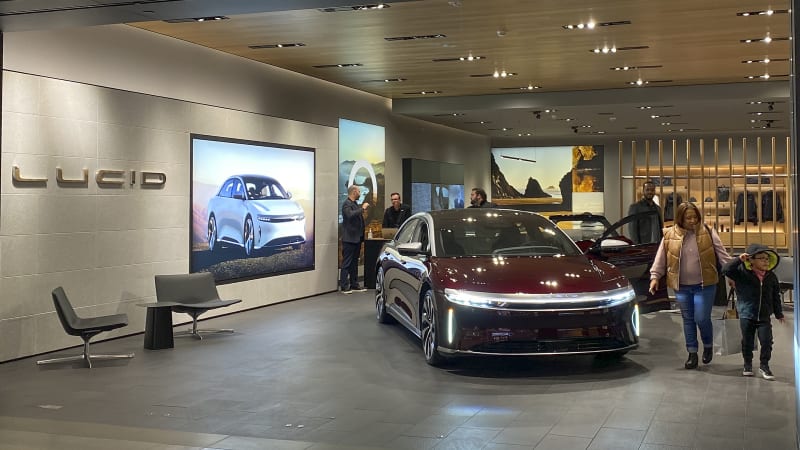One-third of Americans in poll would consider an EV purchase

WASHINGTON — Just over one-third of Americans would consider buying an electric vehicle for their next model, a new Reuters/Ipsos poll found.
The seven-day poll completed on Monday found 34% of all respondents would consider an EV, while 31% said no. Among Democrats 50% said they would consider an EV, while 26% of Republicans and 27% of independents said they would consider.
There are now more than 80 EV models for sale in the United States. EVs represented nearly 6% of all U.S. sales in 2022, with EV sales up by more than 60% last year.
President Joe Biden wants 50% of all new vehicles sold in 2030 to be EV or plug-in hybrid models. Tesla Inc is the leading EV maker in the U.S., but other top-selling models include Ford Motor Co’s Mustang Mach-E SUV, General Motors Co’s Chevrolet Bolt and Hyundai Motor’s Ioniq 5.
The poll found 56% of respondents would be willing to pay no more than $49,999 for an EV. In August, the Biden administration won a significant expansion of $7,500 electric vehicle tax credits and other battery and EV manufacturing incentives to shift the industry toward electric models but EVs are still often significantly above $50,000.
The poll also found that 35% wanted an EV that offered 500 or more miles of electric driving range per full charge, a distance few EVs offer today. Another 37% wanted a minimum of 300 miles.
The world’s top automakers are spending hundreds of billions of dollars to develop EVs, along with the batteries and raw materials to support that production as the Biden administration moves to adopt new regulations to speed the transition away from gasoline-powered vehicles.
In the coming weeks, the U.S. Environmental Protection Agency plans to propose new, more stringent vehicle emissions rules through at least the 2030 model year.
In December 2021, the EPA finalized new light-duty tailpipe emissions requirements through the 2026 model year that reversed then-President Donald Trump’s rollback of car pollution cuts.
One big question is whether the new EPA rules will be consistent with California’s aggressive efforts to ramp up zero- emission vehicles and phase out new gasoline-powered vehicles by 2035.
California Air Resources Board Executive Officer Steven Cliff told Reuters in December the federal government should “look at stringency that’s equivalent to our rules … We’re 68% zero emissions in 2030 so modeling that and looking at that as an option for 2030 is absolutely critical.”
Biden has not endorsed California’s plan to phase out new gas-powered light-duty vehicles by 2035.
The Reuters/Ipsos poll, conducted online, surveyed 4,410 people nationwide and had a credibility interval of about 2 to 3 percentage points in either direction.



